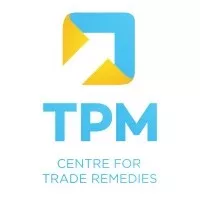- The Government is empowered to set higher quality standards under public policy, in order to protect human, animal or plant health safety of the environment or prevention of unfair practices or national security.
- Establishment of a basic level of quality standard for certain products, irrespective of whether domestically manufactured or imported, is not inconsistent with the Agreement on Technical Barriers to Trade (TBT).
- Since quality control standards apply to both domestic and imported goods, they do not benefit the interests of domestic producers.
- Joint Secretary to the Government of India, under the Department of Chemicals and Petrochemicals is competent for directing compulsory use of standard mark in order to protect human, animal or plants health, safety of the environment on prevention of unfair trade practices or national security.
- The Executive has the expertise and is entitled to make policies, including those with regard to quality control standards. Unless the decision-making is arbitrary, High Court shall not interfere with such policy decisions under Article 226 of the Constitution.
The present dispute arose pursuant to challenge by Century Plyboards Limited and Cent Ply against the decision of the Union of India (UOI) to bring two raw materials namely 'Phenol' and 'Melamine' under mandatory BIS certification. These recommendations were made pursuant to an Expert Committee Meeting held on 22nd April 2019 under the BIS Act, 2016. The petitioners argued that the measures were an abuse of power by the Government, and should be terminated.
In summary, the petitioners argued as under.
- While the Agreement on Technical Barriers to Trade (TBT Agreement) permits protection of legitimate regulatory policy objectives, it cannot be used to create unnecessary obstacles to international trade. The TBT Agreement allows technical barriers to be invoked to mitigate the risks to human and plant health, and curb deceptive trade practices.
- There was no study conducted, or report issued with respect to matters of public health, safety and environment before fixation of measures.
- The product was not being used by consumers, but by industrial users.
- Contrary to the observations made, phenol or melamine of industrial grade were not being used for pharmaceutical or medical or human consumption purposes. Further, there was no risk to national security because of imports thereof.
- The measures could potentially lead to price fixation, by impacting free competition, to the detriment of the users. The measures would benefit the private interests of domestic producers.
- The Joint Secretary, Department of Chemicals and Petrochemicals, lacked the authority to enforce mandatory BIS certification. Instead, the petitioners contended that the Secretary, Ministry of Commerce is the appropriate authority for such matters.
The Court noted that the BIS Act has two objectives, namely to safeguard consumers against substandard products and to promote standardization and quality control in domestic and export markets. The provisions of the Act make it clear that the Central Government may issue directions to the Bureau to invoke technical barriers, if it is of the opinion that it is necessary or in the public interest or for the protection of human, animal or plant health, safety of the environment or prevention of unfair trade practices or national security. On such direction, a draft form of the Standard would be prepared and circulated for comments. Pursuant to receipt of comments, the Standard may be notified.
The Court examined the evidence submitted by the Union of India and observed that the evidence indicates the hazardous impact of these raw materials having higher impurities than the permissible level. Phenol is widely used in pharmaceuticals, cosmetics, and mouthwash production, where impurity levels must be strictly controlled. Similarly, Melamine foam is used for insulation, soundproofing, and cleaning products like Magic Erasers. However, Melamine has also been illegally added to food products to falsely boost protein content, posing significant health hazards. Given these risks, the Court found that the Government is empowered to set higher quality standards under public policy, in order to protect human, animal or plant health safety of the environment or prevention of unfair practices or national security.
The Court also noted that adequate opportunity was provided to all stakeholders through stakeholder consultation meeting and by notifying the draft Order on the WTO website.
Further, on the applicability of TBT Agreement, the Court found that establishing minimum quality standards for products, regardless of whether they are domestically manufactured or imported, serves the larger public interest. Therefore, the decision to make BIS certification mandatory does not violate the TBT Agreement, and in fact, was permissible under the GATT.
The Court also noted that the decisions relating to BIS standards are purely "policy decision" of the Government. The Court cannot usurp the jurisdiction of decision makers in the garb of judicial review, particularly since the Court does not have the expertise and domain knowledge to make policies or amend them, which the executive has. Unless the policy decision is completely arbitrary or irrational, the decisions should not be interfered with.
The Court also found that the measures could not be construed to benefit private interests of domestic producers, as they equally applied to domestically manufactured and imported goods.
Lastly, the Court found that the Joint Secretary of the Department of Chemicals and Petrochemicals, Ministry of Chemicals & Fertilizers is indeed competent to direct the compulsory use of BIS standard mark.
In view of the above, the Court did not find any illegality, or arbitrariness in the decision-making process for making BIS standards mandatory and dismissed the writ petition filed.
The content of this article is intended to provide a general guide to the subject matter. Specialist advice should be sought about your specific circumstances.


